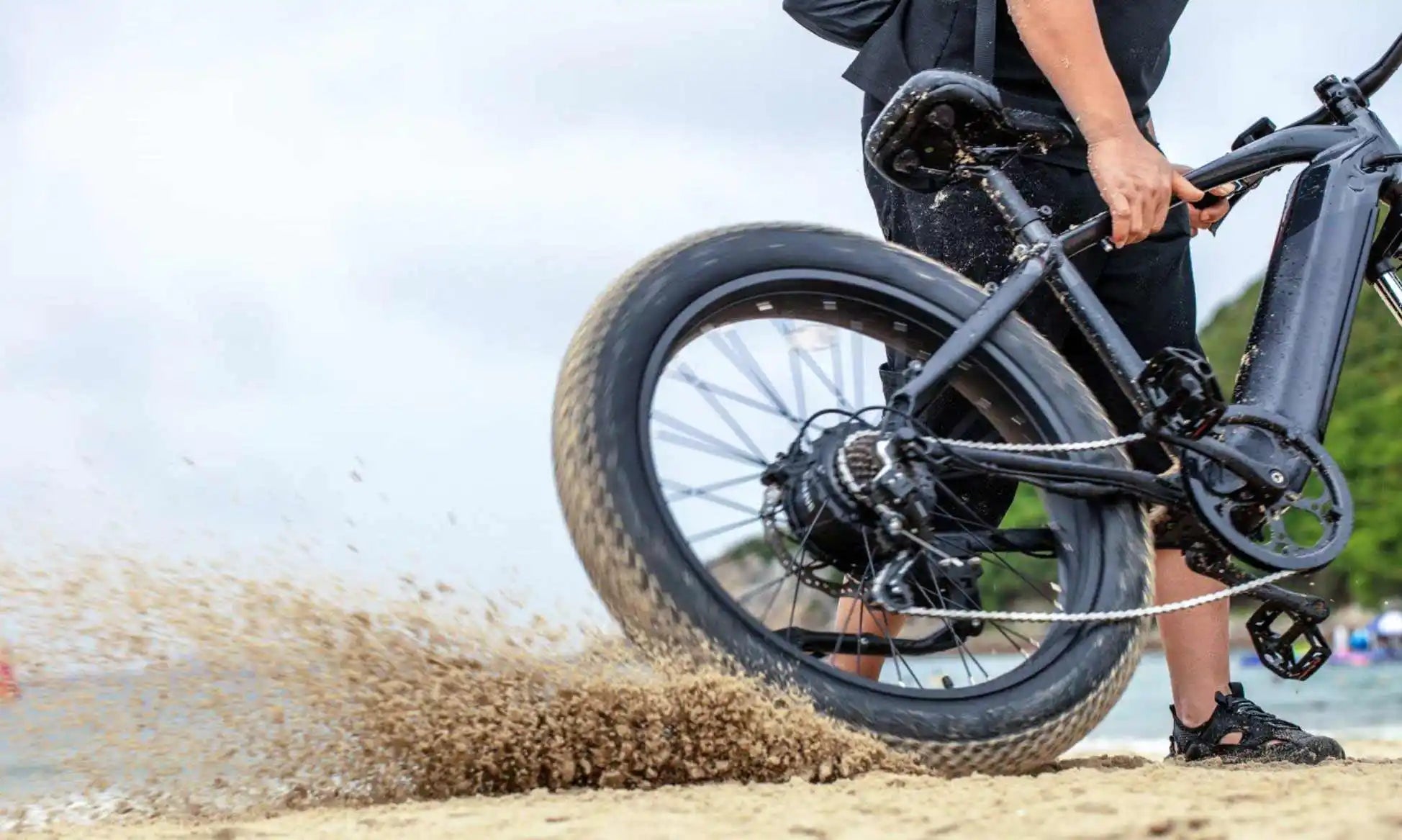Why We Choose The Bike with Disc Brakes? Some Points for You!

Are you hesitating to choose a bike with disc brakes? Braking systems are essential for any type of transportation because they are directly related to the safety of the user. In the bicycle industry, the mainstream braking system now is the disc brake.
What are the types of disc brakes?
Among the types of bicycle disc brakes, there are two main types: one is the cable-operated disc brake (mechanical) and the other is the hydraulic disc brake.
1. Cable-operated disc brake, which relies on the pulling force of the brake cable to make the brake pads (lining pads) in the caliper rub and clamp the disc to produce the braking effect.
2. Hydraulic disc brakes use oil as the medium, through the force of the brake handle, the piston inside compresses the oil, and the pressure goes straight from the oil pipe to the caliper, thus pushing the piston inside the caliper and driving the brake pads to clamp the disc.
The main difference between the two types of disc brakes lies in the transmission medium. A cable-operated disc brake produces braking on the disc by pulling on the brake line; a hydraulic disc brake produces braking on the disc by applying pressure to the brake fluid in the oil pipe and using the oil to push the brake pads.
Therefore, the cable-operated disc brake is similar to the most common V brake we usually use. In addition to the discs and brake skins, the remaining things are basically common to both. The hydraulic disc brake is different. The brake handle, oil pipe, and caliper of the hydraulic disc brake are a complete set of products.
Bike with disc brakes or bike with V brakes, which one is better?
The friction of the v-brake is a rubber mixture and rim contact friction, and the general braking effect is still very strong. Unless in continuous high-speed downhill, continuous braking. After we brake downhill for a long distance, you can feel the rim with your hand, it will be very hot, and the force of the brake will be weakened at such temperature. The higher the temperature, the more the braking effect decreases.
Disc brakes are made of metal discs (usually steel, but high-grade ones are also made of aluminum) and disc brake friction blocks to brake, so the brakes are very strong, similar to cars and high-grade motorcycles, and are not affected by rain and bad road conditions. Although the power drop is obvious, it is stronger than the rubber and aluminum rim friction of a V-brake. The disc brake discs are made of steel and are generally perforated, so the decay with the increase in heat during the continuous downhill braking process is better than the V-brake.
From now on, V-brakes are still relatively popular, but they are best used only for low-intensity riding. If you are looking for a lightweight and only ride on city roads, then cheap and convenient V-brakes are enough for you. It's cheaper to maintain and lighter in weight, making it a great choice.
But if you are an avid mountain biker, then you will inevitably choose some rougher roads and harsh environments to experience the fun of mountain cross-country. But on these complicated roads, the weaknesses of V-brakes will naturally come out. For example, if the brakes are used for a long time, the brakes will be scorched and the brakes will not work; in the mud, the brakes will not work because of the mud and water on the rims.
So, if you're looking for a more extreme riding experience and adventure on rough roads, then a bike with a disc brake is the way to go. However, bikes with disc brakes will inevitably be heavier and more costly to maintain after damage.
Yet at the expense of weight, you get adequate brake coverage. Disc brakes have almost no environmental requirements, the only thing you need to take care of is the care of the discs. Never get oil on your discs, and also make sure that the shape of your discs is not deformed.
Suggestions for buying
If you have a low budget, it is recommended to use V brakes because disc brakes are complicated and slightly more expensive. Using disc brakes will inevitably reduce the quality of the body, which is counterproductive. Almost all the experienced people's statement is: "Low-priced disc brakes are not as good as medium-priced V brakes".





























